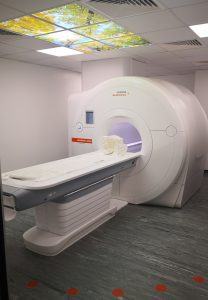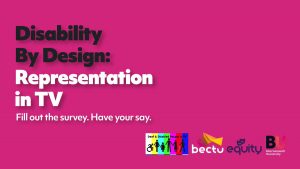Last week, the Women’s Academic Network (WAN) hosted an extremely powerful, thought provoking and very well attended, public engagement Q&A Panel discussion that brought together four eminent women scholars-of-colour from different minoritised ethnic groups, as well as a representative from the Bournemouth University Student Union (SUBU), to discuss one of the most urgent and critical issues of social justice facing HE today.
Our esteemed panellists were:
Professor Kalwant Bhopal, Professor of Education and Social Justice, Director of the Centre for Research on Race and Education, University of Birmingham.
Professor Ann Phoenix, Professor of Psychosocial Studies, at the Thomas Coram Research Unit, UCL Institute of Education.
Dr Samantha Iwowo, Programme Leader of MA Directing, Film and TV at BU.
Professor Gargi Bhattacharyya, Professor of Sociology at the Centre for Migration, Refugees and Belonging, University of East London
Ms Chiko Bwalya, Education Vice President of SUBU.
All our panellists work within the broad areas of racialisation/ethnicisation and brought their own particular research expertise, intellectual and experiential understandings to a grounded, candid and hugely resonant discussion of diversity in contemporary HE.
The VC, Professor John Vinney, opened the event with a most engaged and thoughtful address that skilfully foregrounded the panel discussion. All the speaker contributions were premised on the demographic evidence and perception that the UK academy is characterised by a homogeneity that fails to reflect social diversity, particularly in terms of ethnicity, gender and class. Moreover, the alarming lack of representation among minoritised ethnic groups in HE not only exemplifies a dereliction of social justice but is demonstrably counterproductive to the academy across every area of scholarly endeavour, including inclusive pedagogy.
The resulting discussion was varied and broad in scope, rich in concept, and profoundly analytical, where both the Athena SWAN and the Race Equality Charter under AdvanceHE were scrutinised by Professor Kalwant in reference to authenticity, equality and effectiveness. Intersectional differences and epistemic violence formed the basis of Professor Phoenix’s discussion, while Dr Iwowo closely considered decolonisation of curricula. Professor Bhattacharyya explored the vexed question of ‘What can we do when we are told there is no racism?’; and this in turn was followed by a talk from the youngest but no less impressive speaker, Ms Bwalya, on the impact on these deficiencies on the student experience.
Judging from the popularity of the event, the high level of engagement, the feedback and questions from a respectful but riveted audience this was not only a very timely occasion but one that was seen to make a hugely important contribution to HE debates on diversity. We were delighted that not only were so many key members of UET and BU present, but that this event had a very wide reach attracting an audience from right across the HE sector and the interested lay public as well. Through events such as these, WAN is additionally showing that the network has come-of-age in engaging with some of the most pressing agendas preoccupying HE today.
Accordingly, we would like to extend our deepest thanks and appreciation to all our panellists with a special acknowledgement to Dr Iwowo and Ms Bwayla for acting as the internal BU panellists, along with Professor Phoenix who is a Visiting Professor in the Faculty of Health & Social Sciences. We would like to very warmly thank the VC and all others members of UET for their support of WAN and their strong encouragement of the event, which was recognised as a truly excellent contribution to diversity and inclusion at BU. A final thanks to our great support team in IT, Communications, Events & Conferences for all their help in making this fantastic event happen.
Finally, if unfortunately, you missed the event but would like to learn more about it, please contact me for more information on scrabtree@bournemouth.ac.uk
 This is a reminder that on Wednesday, 12 May 2021 from 11.30am to 1pm, RDS will be hosting Virtual STEAMLab event under the strategic investment area of Assistive Technology.
This is a reminder that on Wednesday, 12 May 2021 from 11.30am to 1pm, RDS will be hosting Virtual STEAMLab event under the strategic investment area of Assistive Technology. Every BU academic has a
Every BU academic has a  By clicking on this box, on the left of the Research Blog home page just under the text ‘Funding Opportunities‘, you access a
By clicking on this box, on the left of the Research Blog home page just under the text ‘Funding Opportunities‘, you access a  BU’s Institute of Medical Imaging and Visualisation (IMIV) will be part of a project awarded funding by the National Institute for Health Research (NIHR) to test a new Alzheimer’s diagnostic tool in the NHS.
BU’s Institute of Medical Imaging and Visualisation (IMIV) will be part of a project awarded funding by the National Institute for Health Research (NIHR) to test a new Alzheimer’s diagnostic tool in the NHS.














 Connecting Research with Practice: FoodMAPP Secondment in Austria and France
Connecting Research with Practice: FoodMAPP Secondment in Austria and France Health promotion paper read 8,000 times
Health promotion paper read 8,000 times The Beautiful Work Challenge: On Birth
The Beautiful Work Challenge: On Birth Free event on Solutions to Inequalities in Dementia Diagnosis and Care
Free event on Solutions to Inequalities in Dementia Diagnosis and Care MSCA Postdoctoral Fellowships 2025 Call
MSCA Postdoctoral Fellowships 2025 Call ERC Advanced Grant 2025 Webinar
ERC Advanced Grant 2025 Webinar Horizon Europe Work Programme 2025 Published
Horizon Europe Work Programme 2025 Published Horizon Europe 2025 Work Programme pre-Published
Horizon Europe 2025 Work Programme pre-Published Update on UKRO services
Update on UKRO services European research project exploring use of ‘virtual twins’ to better manage metabolic associated fatty liver disease
European research project exploring use of ‘virtual twins’ to better manage metabolic associated fatty liver disease